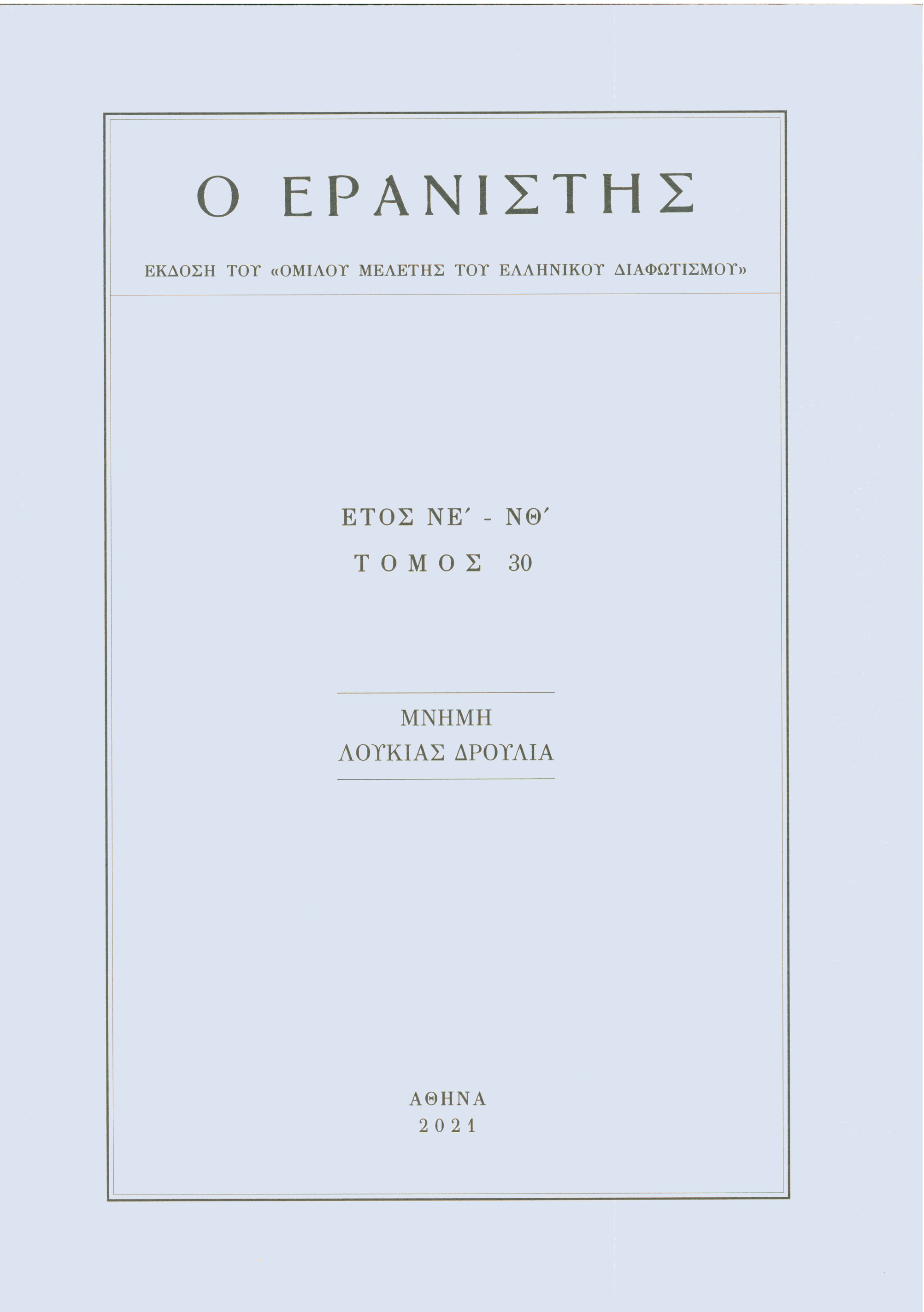Αρμόδιος και Αριστογείτων Μια διασκευασμένη τυρρανοκτονία στο ελληνικό προεπαναστατικό θέατρο

Abstract
Harmodius and Aristogeiton. An Adapted Tyrannicide in the Greek Pre-revolutionary Theater
The tragedy Αρμόδιος και Αριστογείτων (Harmodius and Aristogeiton) is the most radical theatrical play performed by Greek amateur actors in Odessa in the years 1814-1820, since its subject is the tyrannicide as a legitimate resistance of citizens to power, when it arbitrarily abolishes natural law. The tragedy, first staged in 1819, was until now considered to be an original work of Georgios Lassanis (1793-1870), but my article proves that in fact it is a theatrical adaptation of a part of the novel Aristides und Themistocles (1792), written by the German scholar Ignaz Aurelius Feßler (1765-1839), a member of the Illuminati Order. A comparison of the novel with the ancient sources for the two tyrannicides shows that the changes made by the enthusiastic Kantian Feßler (mainly the concealment of the homoerotic character of the relationship between the two heroes) aimed to adapt the historical material to Kant’s conception that morality is based on the autonomy of the will. Lassanis kept the changes of Feßler and added some new inventions which emphasize even more the autonomy of the will as a condition of morality. The close relationship of Lassanis’ dramaturgy with his engagement as a member of the Filiki Etaireia becomes obvious not only in the choice of the subject of death for the homeland and democracy but is also manifest in his (pen-)name «Lyssanias». Lassanis’ nom de guerre is not a phonic variant of his name (as it has commonly been assumed until now) but rather refers to the verse of Aristophanes «Λυσανίαι πατρῴων μεγάλων κακῶν»; it therefore denotes one who liberates the homeland from sorrow and pain.
Article Details
- How to Cite
-
Chatzipanagioti-Sangmeister, J. (2024). Αρμόδιος και Αριστογείτων: Μια διασκευασμένη τυρρανοκτονία στο ελληνικό προεπαναστατικό θέατρο. The Gleaner, (30), 253–286. https://doi.org/10.12681/er.36101
- Section
- Μελετήματα

This work is licensed under a Creative Commons Attribution-NonCommercial-ShareAlike 4.0 International License.
The copyright for articles in this journal is retained by the author(s), with first publication rights granted to the journal. By virtue of their appearance in this open access journal, articles are free to use (with the exception of the non-granted right to make derivative works) with proper attribution for non-commercial uses. The Greek Society for Eighteenth-Century Studies (ΟΜΕΔ) retains the worldwide right to reproduce, display, distribute, and use articles published in THE GLEANER in all formats and media, either separately or as part of collective works for the full term of copyright. This includes but is not limited to the right to publish articles in an issue of the Journal, copy and distribute individual reprints of the articles, authorize reproduction of articles in their entirety in another ΟΜΕΔ’s publication, and authorize reproduction and distribution of articles or abstracts thereof by means of computerized retrieval systems

